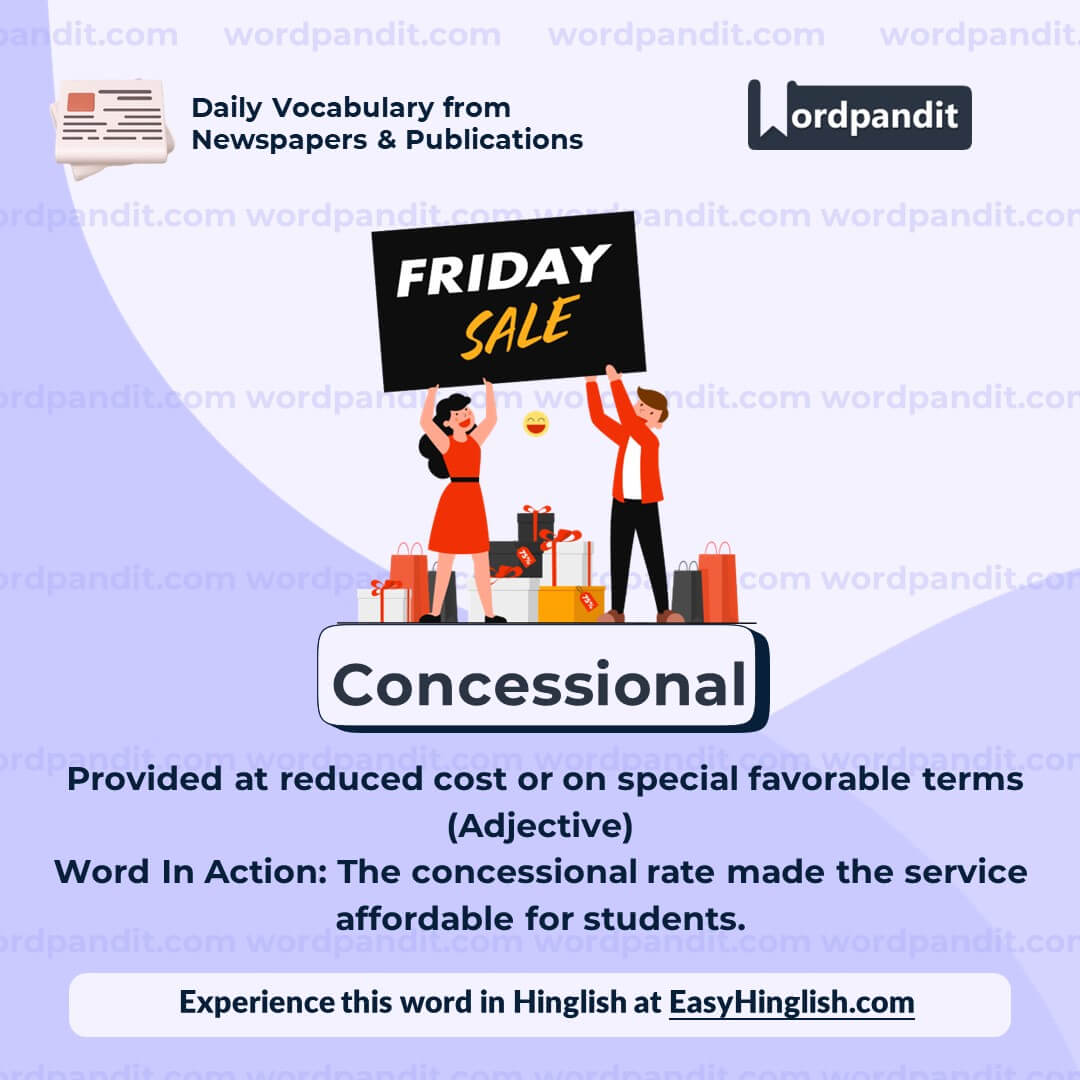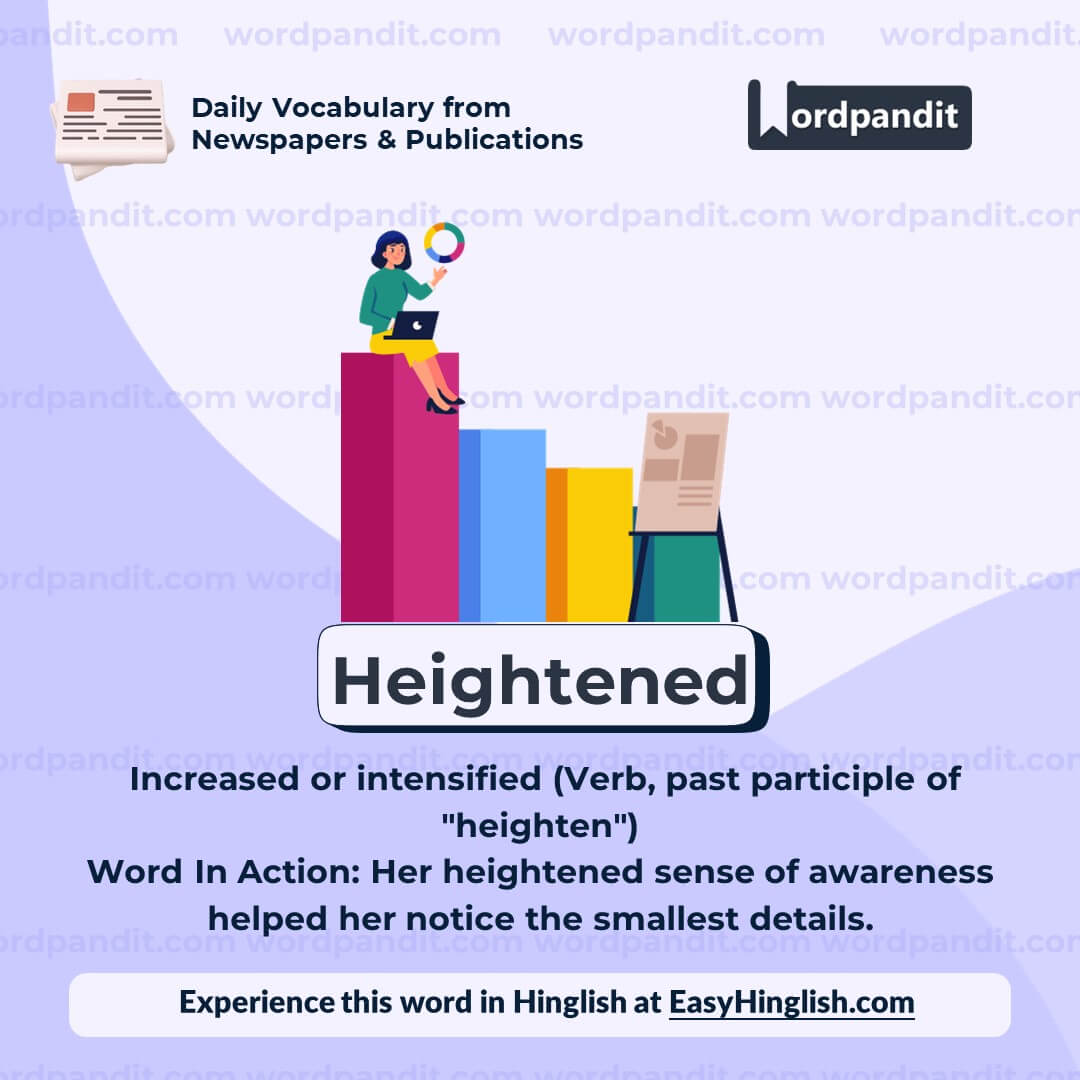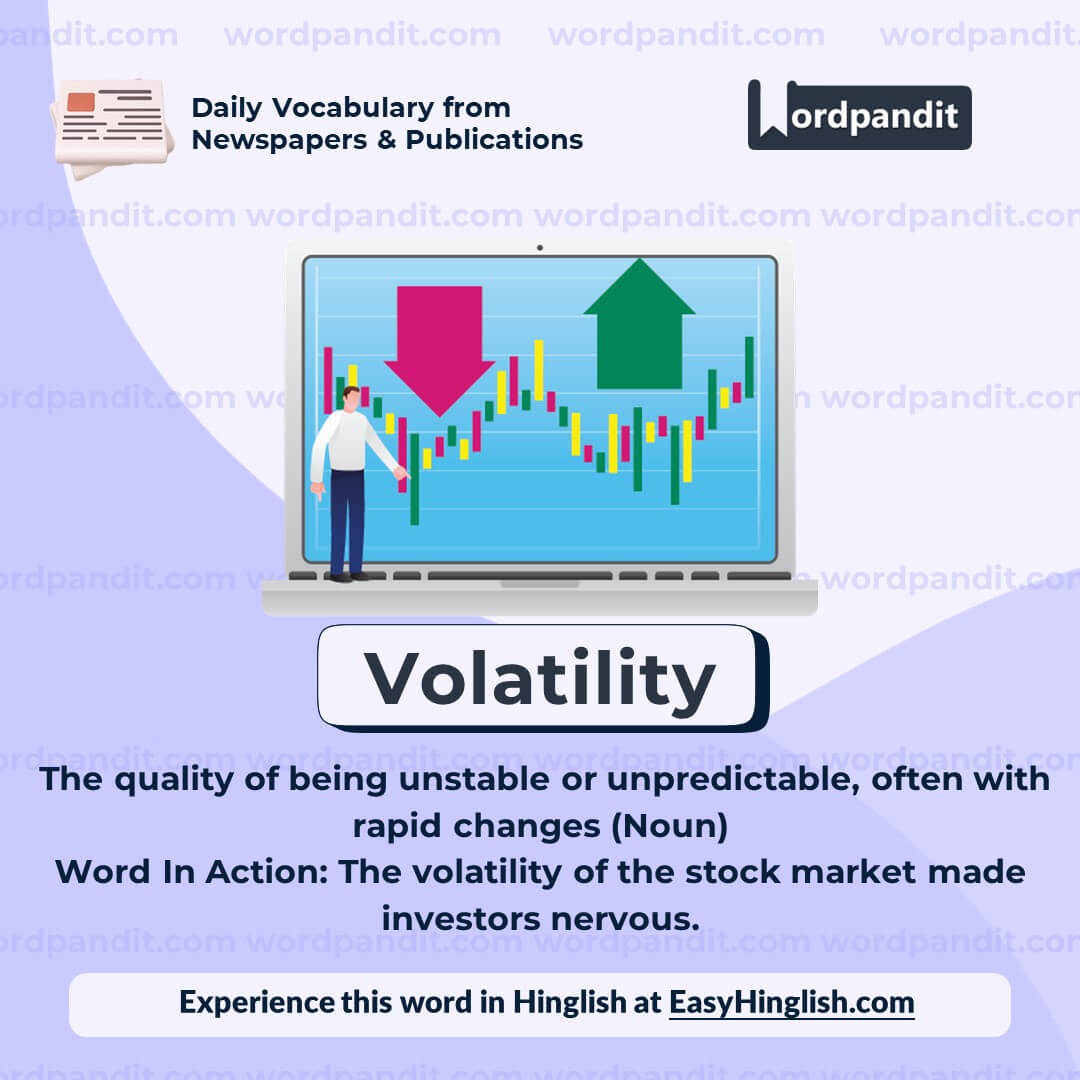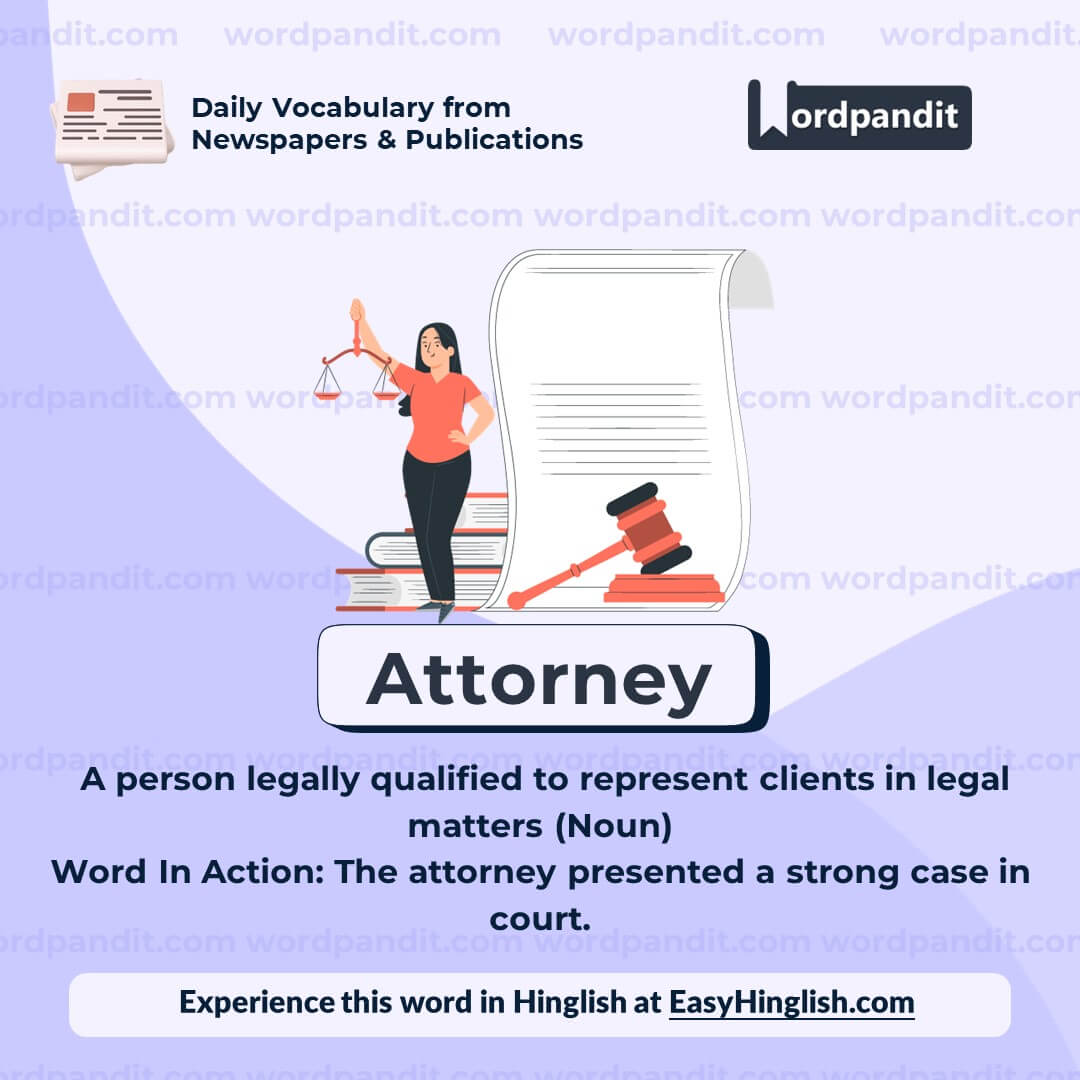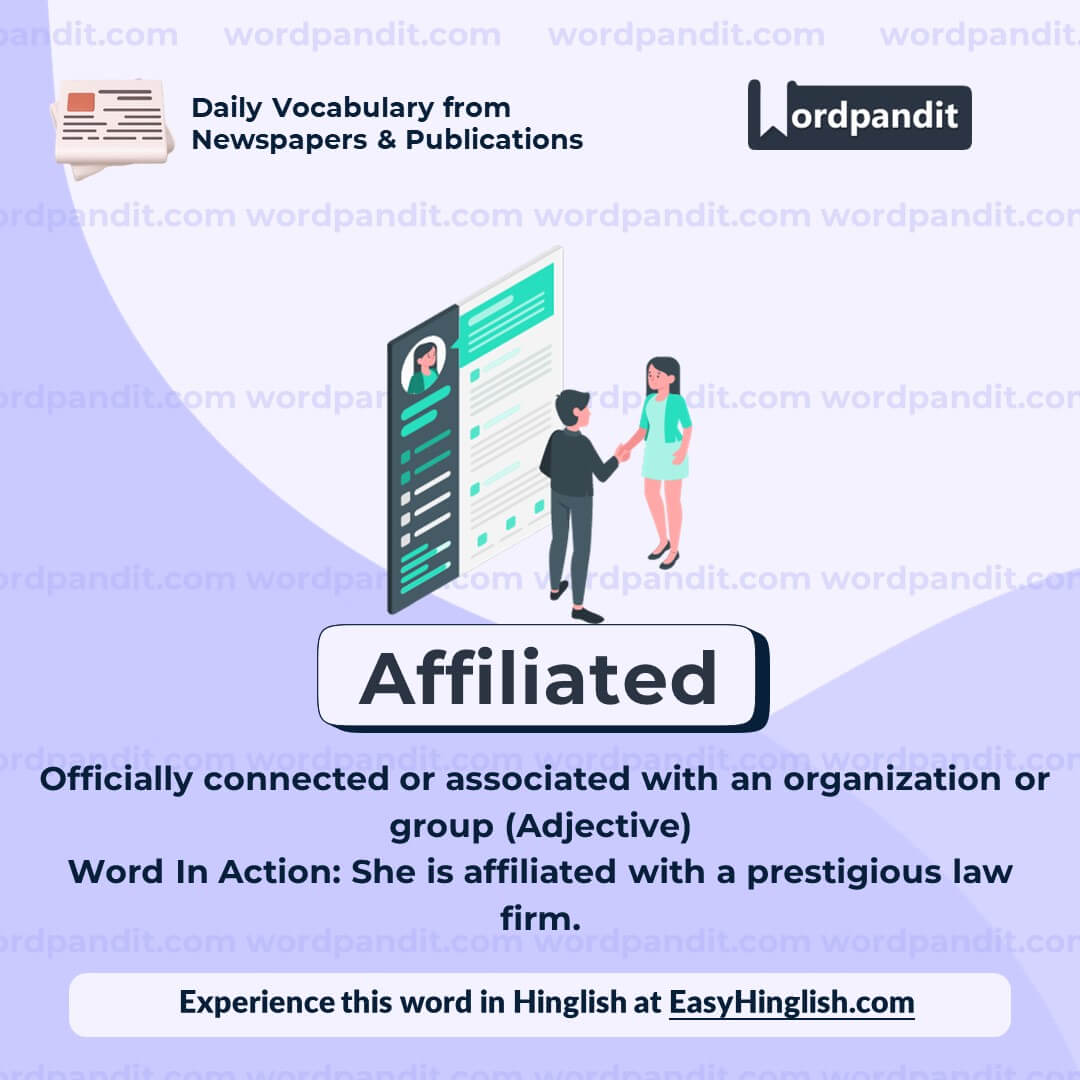Daily Vocabulary from International Newspapers and Publications
Expand Your Vocabulary with Wordpandit’s Global Vocabulary Hub
At Wordpandit, we are committed to helping you develop a truly global vocabulary by drawing from some of the most respected international publications. This section is designed to keep you ahead of the curve by introducing you to words that define global conversations and trends.
The Power of Global Sources
To help you think and communicate on a global scale, we curate vocabulary from renowned international sources, such as:
- The New York Times
- The Washington Post
- BBC
- The Guardian
- The Economist
- Scientific American
- Psychology Today
- And many more...
Stay Global, Stay Competitive
Our daily updates from international publications ensure you are consistently exposed to new words that reflect global news and developments, making sure your vocabulary is not only current but also globally relevant.
Enhance Your Global Perspective
Whether you’re preparing for international exams, aiming to excel in global business communication, or want to enhance your language skills for personal growth, Wordpandit offers the resources you need to thrive in a global context.
Effective Learning, Global Reach
Our learning methodology combines global examples, memory aids, and interactive activities, allowing you to internalize new words effectively and apply them in real-world scenarios.
Begin Your Global Vocabulary Journey Now!
Why Choose Wordpandit?
Practical Learning: Focus on words you'll actually encounter in real-world reading, enhancing your comprehension and communication skills.
Diverse Content: From current affairs to scientific breakthroughs, our varied sources expose you to vocabulary across multiple domains.
Effortless Integration: Make Wordpandit a part of your daily routine. Just a few minutes each day can significantly boost your lexicon over time.
Your Path to Vocabulary Mastery
- Visit our Daily Vocabulary section regularly
- Explore new words and their usage in context
- Practice incorporating these words into your own writing and speech
- Track your progress as your vocabulary expands
Start Your Journey Today
Embark on your vocabulary enhancement journey with Wordpandit. By consistently engaging with our daily posts, you'll build a robust vocabulary that serves you well in academic, professional, and personal contexts.
Remember, a word a day keeps linguistic limitations at bay. Make Wordpandit your daily companion in the quest for vocabulary excellence!
WORD-1: Concessional
Context:
"Centre-state dynamics: Fashioning new tools to stimulate cooperation between the Union and states is exemplified by the range of challenge grants and concessional funding in areas such as urban investment and intra-state electricity reform." - BBC
Explanatory Paragraph:
The term "concessional" refers to something that is provided on more favorable terms than usual, often involving lower interest rates, relaxed conditions, or special privileges. It is commonly used in the context of finance, loans, or aid, where governments or institutions offer concessional funding to support development projects, businesses, or public initiatives.
Meaning: Provided at reduced cost or on special favorable terms (Adjective)
Pronunciation: kuhn-SESH-uh-nuhl
Difficulty Level: ⭐⭐⭐ Intermediate
Etymology: Derived from the noun "concession," which comes from the Latin *concessio*, meaning "a granting or yielding."
Synonyms & Antonyms:
Synonyms: Preferential, subsidized, discounted, favorable
Antonyms: Standard, non-preferential, regular, full-priced
Usage Examples:
- The government announced a concessional loan scheme for small businesses affected by the economic downturn.
- Students from economically weaker sections can avail themselves of concessional education fees.
- Many developing countries rely on concessional financing from international institutions to support infrastructure projects.
- Concessional trade agreements often allow developing nations to export goods at reduced tariffs.
Cultural Reference:
"Concessional loans are a crucial tool in global development, allowing poorer nations to access capital under more lenient conditions, often supported by institutions like the World Bank and the IMF." - Global Development Report
Think About It:
How do concessional policies help bridge economic inequalities between developing and developed countries?
Quick Activity:
Identify a concessional scheme in your country (such as student loans, government grants, or subsidies) and summarize how it benefits its recipients.
Memory Tip:
Think of "concessional" as a "concession" or "special allowance" that makes things easier or cheaper for people in need.
Real-World Application:
Concessional funding is widely used in economic policies, such as subsidized housing loans, agricultural support, and special tax breaks for startups. Understanding this term helps in financial literacy and policy discussions.
WORD-2: Heightened
Context:
"Our senses are heightened, and there are things you see at night that you don't see any other time, so everything feels exciting and new." - BBC
Explanatory Paragraph:
The word "heightened" refers to something that has been increased in intensity, level, or degree. It is often used to describe emotions, awareness, or sensations that become stronger or more pronounced. For example, a person may experience heightened anxiety before an important event or heightened senses in a thrilling situation.
Meaning: Increased or intensified (Verb, past participle of "heighten")
Pronunciation: HAI-tnd
Difficulty Level: ⭐⭐ Beginner-Intermediate
Etymology: Derived from the verb "heighten," which comes from the Old English *heah* meaning "high" and later evolved to mean "increase or intensify."
Synonyms & Antonyms:
Synonyms: Intensified, elevated, increased, amplified
Antonyms: Reduced, diminished, lowered, weakened
Usage Examples:
- Her heightened sense of awareness helped her navigate through the dark forest.
- During the festival, there was heightened security to ensure public safety.
- The movie’s suspenseful soundtrack created a heightened sense of tension among viewers.
- His heightened emotions led to an outburst in the meeting.
Cultural Reference:
"Heightened states of awareness are often explored in meditation and mindfulness practices, where individuals report an increased sensitivity to their surroundings." - Psychology Today
Think About It:
Can heightened emotions be beneficial, or do they mostly lead to impulsive decisions?
Quick Activity:
Write a short paragraph describing a situation where you experienced heightened emotions, awareness, or excitement.
Memory Tip:
Think of "heightened" as something that "reaches a higher level," like turning up the volume on your emotions or senses.
Real-World Application:
The term "heightened" is widely used in security alerts, medical conditions (such as heightened stress levels), and storytelling to create dramatic effects.
WORD-3: Volatility
Context:
"Heightened volatility in emerging markets feeds into forex reserve management." - The Guardian
Explanatory Paragraph:
The word "volatility" refers to the tendency of something to change rapidly and unpredictably, often in an extreme manner. It is commonly used in financial markets to describe large fluctuations in asset prices, but it can also apply to emotions, political situations, or even weather patterns. When markets experience high volatility, prices can rise or fall sharply in a short period, making investments riskier.
Meaning: The quality of being unstable or unpredictable, often with rapid changes (Noun)
Pronunciation: vaw-luh-TIH-luh-tee
Difficulty Level: ⭐⭐⭐ Intermediate
Etymology: Derived from the Latin *volatilis*, meaning "fleeting or flying," which later evolved to signify rapid change.
Synonyms & Antonyms:
Synonyms: Instability, unpredictability, fluctuation, turbulence
Antonyms: Stability, consistency, steadiness, predictability
Usage Examples:
- The stock market's volatility has made investors cautious about making large trades.
- Extreme weather conditions have increased the volatility of agricultural production.
- Political volatility in the region has led to uncertainty in international trade negotiations.
- Her emotional volatility made it difficult to predict her reactions in stressful situations.
Cultural Reference:
"Market volatility often rises during economic crises, as seen during the 2008 financial collapse and the COVID-19 pandemic." - Financial Times
Think About It:
Can volatility be beneficial in any way, or is it always a negative force in finance and life?
Quick Activity:
Find a news article about recent financial market volatility and summarize its key points in a few sentences.
Memory Tip:
Think of "volatility" like boiling water—bubbling and changing rapidly, never staying still.
Real-World Application:
Understanding volatility is crucial for investors, business owners, and policymakers. It helps in risk assessment, financial planning, and making informed decisions in uncertain environments.
WORD-4: Attorney
Context:
"More lawsuits are coming,” said Jonathan Mitchell, an attorney for the plaintiffs." - Washington Post
Explanatory Paragraph:
The word "attorney" refers to a person who is legally qualified to represent clients in legal matters, including lawsuits, negotiations, and court proceedings. Attorneys provide legal advice, draft documents, and advocate for individuals or organizations in legal disputes. In some countries, the terms "lawyer" and "attorney" are used interchangeably, though in the United States, an attorney typically refers to someone actively practicing law.
Meaning: A person legally qualified to represent clients in legal matters (Noun)
Pronunciation: uh-TUR-nee
Difficulty Level: ⭐⭐ Beginner-Intermediate
Etymology: Derived from the Old French *atorné*, meaning "one appointed," and later adapted into Middle English as "attorney," meaning a legal representative.
Synonyms & Antonyms:
Synonyms: Lawyer, counsel, legal representative, advocate
Antonyms: Defendant, client, layman, non-lawyer
Usage Examples:
- She hired an attorney to handle her divorce proceedings.
- The defense attorney argued that the evidence was insufficient to convict his client.
- The company’s attorney reviewed the contract before it was signed.
- In high-profile cases, experienced attorneys often make compelling arguments in court.
Cultural Reference:
"In the United States, the Attorney General is the chief legal officer of the country, responsible for overseeing the Department of Justice." - U.S. Government Manual
Think About It:
What qualities make a great attorney, and how do they influence the outcome of legal cases?
Quick Activity:
Imagine you are an attorney defending a client. Write a short argument convincing the court of their innocence.
Memory Tip:
Think of an "attorney" as someone who "turns" the case in favor of their client through legal expertise.
Real-World Application:
Attorneys play a crucial role in justice systems worldwide, representing individuals, businesses, and governments in legal matters, ensuring fairness and protecting rights.
WORD-5: Affiliated
Context:
"That letter advised anyone currently or formerly affiliated with the university to keep records and communications related to faculty hiring and law-review decisions." - Washington Post
Explanatory Paragraph:
The word "affiliated" refers to being officially connected or associated with an organization, institution, or group. It is commonly used in professional, academic, and corporate settings to describe relationships between individuals and entities. For example, a professor might be affiliated with a particular university, or a business might be affiliated with a larger corporation.
Meaning: Officially connected or associated with an organization or group (Adjective)
Pronunciation: uh-FIL-ee-ay-tid
Difficulty Level: ⭐⭐ Beginner-Intermediate
Etymology: Derived from the Latin *affiliare*, meaning "to adopt as a son," which later evolved in Middle English to mean "to connect or associate with."
Synonyms & Antonyms:
Synonyms: Associated, connected, linked, allied
Antonyms: Independent, detached, unconnected, separate
Usage Examples:
- She is affiliated with several international research organizations.
- The hospital is affiliated with a prestigious medical university.
- Many small companies prefer to be affiliated with larger brands for better recognition.
- His political views are not affiliated with any major party.
Cultural Reference:
"Major news networks often have affiliated local stations that broadcast under their brand while maintaining regional coverage." - Media Studies Journal
Think About It:
Why do organizations seek affiliations with well-known institutions, and how does it benefit them?
Quick Activity:
List three organizations you are affiliated with, such as a school, club, or company, and describe how this affiliation benefits you.
Memory Tip:
Think of "affiliated" as forming a **"link"** between two entities—just like a student is affiliated with a school.
Real-World Application:
Understanding affiliations is crucial in professional and academic settings, as they impact networking, credibility, and career opportunities.



